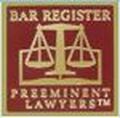Small Business Formation
The choice of business organization can advance achieving business goals. The firm provides advice in selecting business entities. The types of entities considered, by way of example, include sole proprietorships, general partnerships, limited partnerships, limited liability companies, C corporations, and S corporations. To determine the appropriate choice of entity, clients must consider factors including the nature of the business they plan to transact, the property the organization will own, the short and long term prospects for profits and losses, the short and long term financing needs, the objectives of the business investors, the management needs for the organization, the projected number and type of employees and agents, and the number, nature and type of liability the owners and investors are willing to assume. In addition, the firm will prepare all of the documents necessary to form the entity and to document the relationship among the owners and investors. These documents may include articles of incorporation or organization, bylaws, partnership agreements, operating agreements, and subscription agreements, as well as ancillary documents such as shareholder's agreements and loan documents.
Sole Proprietorship
A sole proprietorship is the simplest form of business entity and does not require any formal legal action to set up. A sole proprietorship is, by definition, owned by a single operator. Depending on the state where the sole proprietorship operates, the business will probably need either to register to do business or at least register its name in order to reserve its use. Sole proprietorships are required to obtain appropriate business licenses and permits. In addition to simplicity, the sole proprietorship offers flexibility to shift personal funds and property into the business with minimal legal and tax consequences. The primary disadvantage of using a sole proprietorship is that it subjects the operator to unlimited personal responsibility for the liabilities of the business. As a result, the sole proprietorship should only be selected in a limited number of business contexts.
General Partnerships
A partnership is an association of two or more partners, who can be individuals, corporations or other entities, who each agree to contribute money, property or services and share management responsibilities. The partners share profits and losses as well. In a general partnership, all partners have the authority to bind the partnership and are all individually liable for the debts and other obligations of the partnership. A partnership is not taxed as a separate entity; the profits and losses of the partnership are shared by the partners as provided in the partnership agreement. Thus, the profits and losses flow through the partnership to the individual partners, who are taxed at the rates then applicable to each respective partner.
Limited Partnerships
A limited partnership is similar to a general partnership except that it will have certain ''limited partners" whose personal liability is limited to the amount of each limited partners' investment in the partnership. A limited partner may not participate in the management of the limited partnership if he or she wants to retain this limit on personal liability. Each limited partnership must have at least one general partner who manages the partnership and remains personally liable for the obligations of the partnership. Generally, limited partnerships are taxed in the same manner as the general partnership.
C Corporation
A corporation is a separate legally recognized entity which is distinct from its owners, managers and officers. The owners, or shareholders, elect a board of directors who are responsible for the day to day operations of the corporation. The corporation's primary advantage as a choice of entity is that it affords all of the shareholders with limited personal liability. Generally, a shareholder's liability is limited to the amount that each invests in the corporation. To ensure this protection, it is important to capitalize the corporation adequately and to observe the requirements for maintaining it noted above. Regular corporations, or C corporations, are taxed as separate entities. In addition, as profits are paid as dividends to the shareholders, the shareholders must also pay taxes on the same dollars earned by the corporation. This concept of "double taxation" makes the C corporation form often unadvisable for a small or start-up business.
S Corporation
An S corporation, formerly known as a Subchapter S corporation, is like a C corporation, except for tax purposes. An S corporation is taxed like a partnership in that it passes its profits and losses through to its shareholders in proportion to their shareholdings. This avoids the double taxation problem of the C Corporation. The S corporation is not appropriate for all businesses, because the law limits the number of its shareholders to 35, requires generally that the shareholders be individuals, as opposed to corporations, partnerships or other entities, and restricts the corporation to issuing one class of stock.
Sole Proprietorship
A sole proprietorship is the simplest form of business entity and does not require any formal legal action to set up. A sole proprietorship is, by definition, owned by a single operator. Depending on the state where the sole proprietorship operates, the business will probably need either to register to do business or at least register its name in order to reserve its use. Sole proprietorships are required to obtain appropriate business licenses and permits. In addition to simplicity, the sole proprietorship offers flexibility to shift personal funds and property into the business with minimal legal and tax consequences. The primary disadvantage of using a sole proprietorship is that it subjects the operator to unlimited personal responsibility for the liabilities of the business. As a result, the sole proprietorship should only be selected in a limited number of business contexts.
General Partnerships
A partnership is an association of two or more partners, who can be individuals, corporations or other entities, who each agree to contribute money, property or services and share management responsibilities. The partners share profits and losses as well. In a general partnership, all partners have the authority to bind the partnership and are all individually liable for the debts and other obligations of the partnership. A partnership is not taxed as a separate entity; the profits and losses of the partnership are shared by the partners as provided in the partnership agreement. Thus, the profits and losses flow through the partnership to the individual partners, who are taxed at the rates then applicable to each respective partner.
Limited Partnerships
A limited partnership is similar to a general partnership except that it will have certain ''limited partners" whose personal liability is limited to the amount of each limited partners' investment in the partnership. A limited partner may not participate in the management of the limited partnership if he or she wants to retain this limit on personal liability. Each limited partnership must have at least one general partner who manages the partnership and remains personally liable for the obligations of the partnership. Generally, limited partnerships are taxed in the same manner as the general partnership.
C Corporation
A corporation is a separate legally recognized entity which is distinct from its owners, managers and officers. The owners, or shareholders, elect a board of directors who are responsible for the day to day operations of the corporation. The corporation's primary advantage as a choice of entity is that it affords all of the shareholders with limited personal liability. Generally, a shareholder's liability is limited to the amount that each invests in the corporation. To ensure this protection, it is important to capitalize the corporation adequately and to observe the requirements for maintaining it noted above. Regular corporations, or C corporations, are taxed as separate entities. In addition, as profits are paid as dividends to the shareholders, the shareholders must also pay taxes on the same dollars earned by the corporation. This concept of "double taxation" makes the C corporation form often unadvisable for a small or start-up business.
S Corporation
An S corporation, formerly known as a Subchapter S corporation, is like a C corporation, except for tax purposes. An S corporation is taxed like a partnership in that it passes its profits and losses through to its shareholders in proportion to their shareholdings. This avoids the double taxation problem of the C Corporation. The S corporation is not appropriate for all businesses, because the law limits the number of its shareholders to 35, requires generally that the shareholders be individuals, as opposed to corporations, partnerships or other entities, and restricts the corporation to issuing one class of stock.
Start ups
The firm will assist the new business as it starts up. These services may include preparing employment agreements, drafting consulting agreements, preparing or reviewing leases for office or retail space, registering trade names or trademarks, and filing appropriate fictitious name certificates. In addition, the firm can assist with the myriad of other requirements that face most new businesses including, for example, evaluating and obtaining adequate insurance, obtaining appropriate state and local permits and licenses, making necessary tax filings, establishing bank accounts, qualifying to do business in other states, obtaining tax identification numbers, and preparing permanent business books and records.
Your use of our websites or its facilities constitutes your acceptance of the firm's Disclaimer.
7991 Shaffer Parkway | Suite 101 | Littleton, CO 80127 | P: 303.837.1660 | F. 303.837.0097 | [email protected]
© Bailey & Peterson, P.C. All rights reserved.
7991 Shaffer Parkway | Suite 101 | Littleton, CO 80127 | P: 303.837.1660 | F. 303.837.0097 | [email protected]
© Bailey & Peterson, P.C. All rights reserved.
Proudly powered by Weebly


